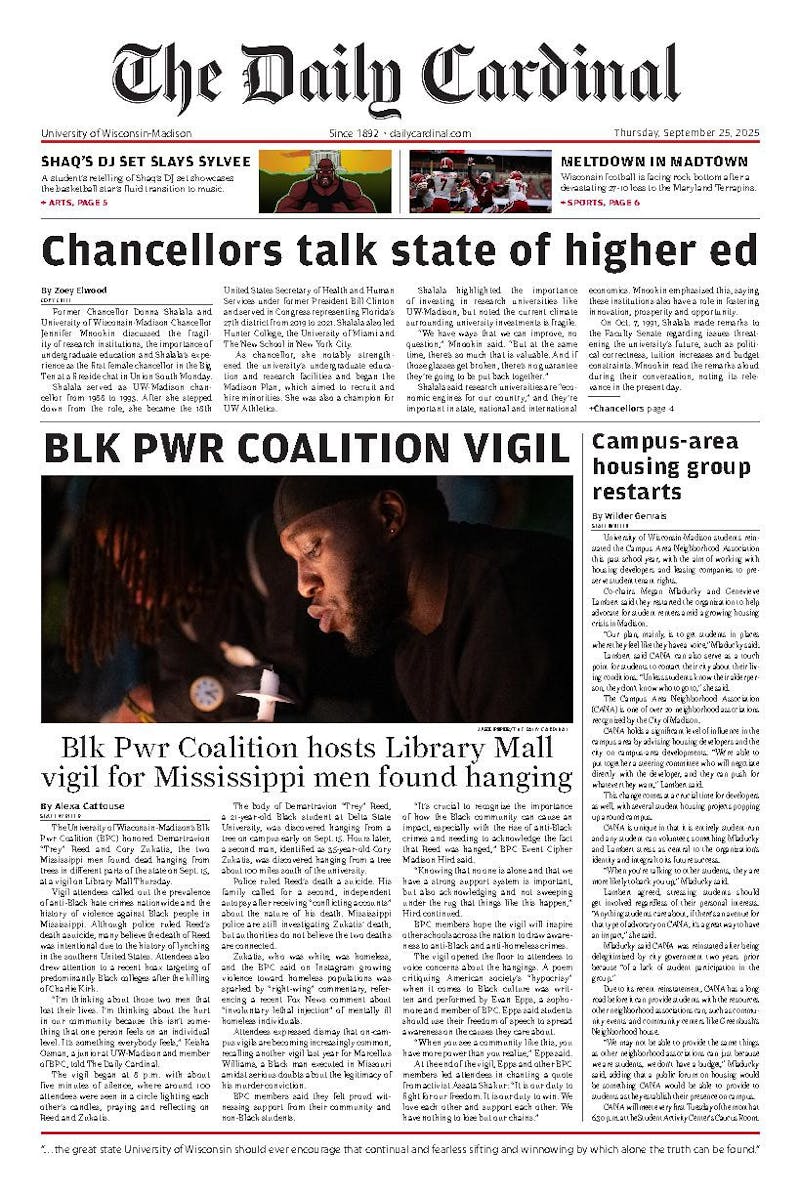Student government representatives discussed the closure of the university’s diversity division in the first Justice, Equity and Belonging (JEB) committee meeting Tuesday, condemning the administration for downplaying the division’s sundowning and turning their back on underrepresented students.
In early September, JEB released a statement criticizing the university’s July closure of the Division of Diversity, Equity and Educational Achievement (DDEEA), calling on students to support cultural centers on campus and spaces for advocacy.
On Tuesday, graduate student Thomas Niepsuj spoke about his past interactions with DDEEA. As the former chair for the Associated Students of Madison’s LGBTQ+ Committee, he had reached out to DDEEA for funding of an event in the past. Now, he said, he feels lost that the DDEEA funding is gone.
“I can no longer go to them — they don’t exist — to get money to help create space for students, as well as faculty, staff, for everyone on campus,” Niepusj said.
There are other vital resources from DDEEA that have also now vanished, JEB Chair Camren Livermore said.
“Some functions [of DDEEA] were brought under different divisions within the university, but some key gaps in those services are funding for keynote speakers for Heritage Month,” Livermore said. “Another concern that we have heard is that there’s been a loss of tutoring services, specifically for the scholars and a loss of certain funds that they can directly access through the division.”
Livermore said the changes made were not communicated well to students.
“These changes were made and communicated to the student body in a way that [said they] wouldn’t directly impact students, but we are seeing that some students are being very directly impacted in a negative way by the changes,” Livermore said.
Additionally, the committee discussed how the university changed the name of the Identity and Inclusion Fund to Student Success and Belonging over the summer.
“It was renamed to reflect this overall shift and shift away from providing direct identity focused support for students to a more generalist approach," Livermore said.
ASM’s Anti-Violence Chair Jake Wesson said recent attacks on diversity, equity and inclusion programs at universities across the country by President Donald Trump and the U.S. Department of Education may have spurred this recent change, Jake Wesson, the for ASM, said.
“Campuses across the nation are kind of shying away from this idea of DEI,” Wesson said, “especially with the federal administration looking down at and targeting schools based on their beliefs.”
When Niepusj asked the committee’s co-chairs what the current cultural center programs are looking like for students now, and how events are being coordinated, they didn’t have any answers for him.
“We are in constant communication with Student Success and Belonging staff, and there’s only so much that they can tell us, because they simply don’t know,” Livermore said.






